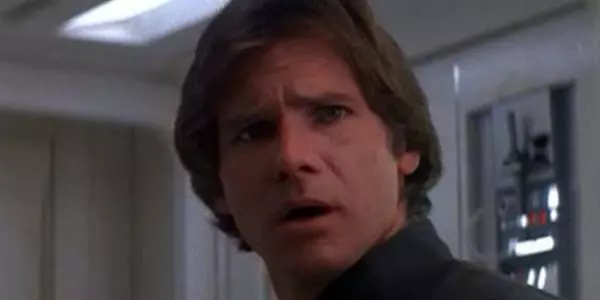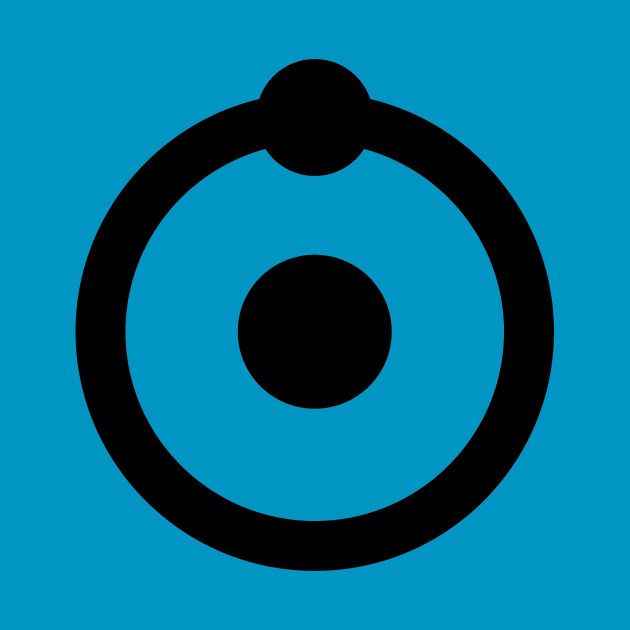Anyone else keep nearly everything set to UTC?
In the military that’s all we used. It’s called Zulu time in the Army and it makes for coordinating events in multiple time zones fairly easy. I would assume the moon would be the same since there will 100% be a moon base with military.
I have response teams in a “follow the sun” model as well as having my US team spread coast to coast, plus all our clients set their servers to UTC. It makes the most sense to keep something set to UTC at a moment’s glance.
Lmao I love how he just gets more and more flabbergasted throughout the whole video. Truly an accurate depiction of dealing with timezones (which I’m unfortunately dealing with right now!)
Based on a completely superficial review there are three almost guaranteed ways to become unhinged; studying infinities, refactoring legacy code, and working with timezones.
I’ve done 2 of those things already. If I ever have to tac on the timezones I will actually break.
I had to refactor legacy date/time code (including timezone code) at work. D:
You poor soul
I think it’s time for a refactor of my legacy code that deals with infinite timezones. :/
That’s a good idea! Instead of discrete timezones, let’s have continuous timezones!
I’ve been a proponent of this for ages. It makes no sense to cross some imaginary line and suddenly time shifts. Time should change constantly as you move east or west, up or down. Everyone has their own personal time, which is constantly updated.
Bonus: no more daylight savings switch.
How do you agree on a meeting time with a group of people who all live in different places of your country?
That’s another benefit: no more meetings.
Not even to spend good times with friends?
That was kinda the situation in the past: Every town would have its own time, synced to the local noon every once in a while as the precision of the church or townhall clock demanded. That stuck around until railroad operators and passengers got sick and tired of dealing with the timetables that produces.
Please end timezones. We only need one universal one and that’s it.
it’s called milliseconds since epoch
Relativity theory enters the chat
The PR is getting way ahead of rocketry results. It’s not helping that Elon is involved.
“Forget it Jake, it’s Moontown.”
Can’t believe the US is putting trains on the moon before making them viable on Earth
I say we compromise we will take the moon but they must give up daylight savings. it’s only fair.
Adds moonlight savings
the fact that the acronym for Coordinated Lunar Time is LTC tells you everything you need to know about how this will work.
Shouldn’t it have its own time system? And have its own time zones? You can’t give the moon its own single time zone (unless you’re into the idea of a single universal time zone).
There’s not really a difference between 0 timezones and 1 timezone, let’s split it and go with 1/2 timezones
That’s actually what they’re doing. The reporting said timezone when the actual order is more about time standards.
They’re creating coordinated lunar time, as a complement to coordinated universal time, so it’s a different time system with details about how it relates to UTC.
https://www.whitehouse.gov/wp-content/uploads/2024/04/Celestial-Time-Standardization-Policy.pdf
Timezones on the moon don’t serve as much function, because the day/night cycle is closer to a month long, and doesn’t map to human rhythms at all. In a hypothetical where we have moon colonies on opposite sides of the moon, there’s no reason for them to not still have synchronized day/night, since it already has no relation to the movement of the sun in the lunar sky.
The Royal Observatory Greenwich:
“Well, as the first to co-ordinate time we-”
The International Telecommunication Union and International Earth Rotation and Reference Systems Service in Unison:
“Excuse me, I think you’ll find we manage the time.”
NIST: “I don’t see your footprints up there! We’re going off my Omega Speedmaster!”
That’s why I prefer TAI time zone
No link to the article in the picture?
Also, wouldn’t it just be simple enough to make the Moon GMT, and be done with it?
Edit: This comment, that has a link to the actual government PDF, says it better than I.
wouldn’t it just be simple enough to make the Moon GMT
You’d think so, but the problem is that because of gravity, clocks on earth and on the moon will very slowly run out of sync. Idk ask Einstein.
You’d think so, but the problem is that because of gravity, clocks on earth and on the moon will run out of sync. Idk ask Einstein.
Yeah I’m aware. It would require ongoing recalibrations of the time display units on the Moon.
Then again if they could just pick up the atomic clock signal (WWV, etc.) from Earth, and then add to it for the time it takes for the signal to cross space from the Earth to the Moon, etc.
At the end of the day it’s just about having all the homo-sapiens going to bed and waking up at the same time, so they can do business in the same window together.
Greenwich Moon Time? I’ll see myself out…
Greenwich Moon Time? I’ll see myself out…
Well played, sir/madam. Well, played. /slowclap
That’s it, I’m only using epoch from now on, that’s enough of your time zone shenanigans
I suspect that won’t help. The reason the Moon needs a time zone is because of gravitational time dilation, time literally runs slower down here on Earth’s surface relative to the Moon’s surface. A computer on the Moon gains an extra 58.7 microseconds each Earth day, so if you’re programming something that’ll be running on Lunar time you’ll need to account for that.
The point of the lunar time zone is not to have a specific UTC offset like other timezones. The moon would have its own set of atomic clocks, and time could be coordinated with earth based on ratio instead of offset.
They’re not going to be maintaining literal atomic clocks on the Moon for this. They’ll apply a mathematical adjustment to UTC based on what the physics calculations say is happening. The details of that adjustment are what NASA has yet to develop. It could involve subtracting a “leap second” from lunar time at intervals, leap seconds are already used for keeping UTC in sync with the solar time so it’s an established process. Or maybe they’ll just let Lunar time continue drifting relative to Earth, in which case there’ll be a different “epoch” on each.
They probably actually will end up with atomic clocks on the moon, or at least in close lunar orbit. If the plan is to have something like gps on the moon, that’s a first step.
So, in this case a moon timezone, and more generally a “space timekeeping framework” makes sense because time actually moves at a different speed on the moon, so epoch times wouldn’t actually stay in sync.
If the goal of “time” is to make it easier to reason about simultaneous things, then space makes that way more complicated.
It’s just tricky to condense that into a headline that conveys the point.The concept of “simultaneous” breaks down over relativistic distances too so that’s equally fucked
Yup. So building a system for “how we build time systems in different reference frames” and “define how we relate those to earth” isn’t irrational, just makes for headlines that are either difficult or very misleading.
Except the length of a second is different on the moon because of relativity. So even utc is wrong.
No the second is still 9192631770 hyperfine transitions of Cs-133 on the moon and that’s the same length of time at least unless you want to severely annoy physicists by implying that the laws of nature aren’t constant throughout the universe. It’s just that from our perspective it looks like time is flowing differently there.
It’s like it’s relative…
You are correct that if you are on thee moon and have a cs-133 atom with you is second will take that many transitions. And if you do the same thing on Earth, a second will take the same number of transitions.
But things get weird when you are on earth and observe a cs-133 atom that is on the moon. Because you are in different reference frames, you are traveling at different speeds and are in different gravity wells time is moving at different rates. This means that a cs atom locally will transition a different number of times in a second from your point of view on Earth vs one you are observing on the moon.
And it would all be reversed if you were on the Moon observing a clock back on the Earth.
They already have to account for this with GPS satellites. They all have atomic clocks on them but they don’t run at the same speed as clocks that are on the ground. The satellites are moving at a great speed and are further from the center of the earth than us, so the software that calculates the distance from your phone to the satellite have to use Einstein’s equations to account for the change in the rate of time.
Relativity is weird.
Yep, and the math gives different results based on if you’re on the moon or on earth.
UTC doesn’t become wrong, you can either just accept a different pace of the clock, i.e. earth ppl will be ever so late to a meeting or it’s just a different kind of timezone conversion. Better would be to have a single time based on the reference frame of the center of the galaxy and everyone keep there time relative to that.
just use a time based on light?, like meter is based on the speed fo light in the vaccum, or use atomic based times?, like how long take for the hydrogen atom todo something bla bla bla
https://en.wikipedia.org/wiki/Second
The second […] is defined by taking the fixed numerical value of the caesium frequency, ΔνCs, the unperturbed ground-state hyperfine transition frequency of the caesium 133 atom, to be 9192631770 when expressed in the unit Hz, which is equal to s−1.
Do not matter for relativity though, always same change.
So are you saying that a caesium-133 atom observed on both the Earth and the Moon to oscillate 9,192,631,770 times will not represent the same absolute span of time?
So, one observer will see those oscillations happen faster than the other?
Does this have to do with the specific gravity fields of both observers, in that those fields affect how the atom oscillates?
Or is there something else I’m missing?
If special relativity is the answer, all good. I’m an electrical engineer trained in classic physics, so I’ll rest knowing that I’d probably need to study that to understand the time differences.
It’s that relativity thing where each person will see the oscillations happening correctly, but when they look at what the other person did, the answer will seem wrong.
The difference is small enough that it really only matters if you’re NASA and building moon GPS. MPS?
I vote for LPS, Lunar Positioning System, vs our Global one.
So, one observer will see those oscillations happen faster than the other?
Not quite. In each observer’s frame of reference, time appears to pass the same; it’s only when you try to reconcile the between two objects that are not at rest with respect to each other does relativity show up.
Basically, when you bring someone back to Earth, the observers will find that their watches don’t match up even though both observers experience time passing the same way as normal (because the oberserver is by definition at rest with respect to their own frame of reference).
TL; DR: Relativity is a pain in the ass and makes no sense in everyday terms.
edit: disclaimer - I am not a physicist and have not taken physics classes in a decade plus, but I do teach science at a college. I’m going mostly on half-remembered lectures and some random one-off discussions I’ve had with my buddy in the physics department over the past few years.
That’s actually what’s different on the moon. Relativity and all that means that time itself actually flows differently on the moon than it does on earth.
The actual problem they’re working to solve is around timekeeping and GPS applications in different reference frames, but it’s hard to make a short headline about.
When I first saw the news I was thinking “there’s no way atoms vibrate differently on the moon” but you’re right it’s about perspective and I’ve realized there’s no way I’m smart enough to handle timezones on an interplanetary scale. I can only hope that the difference between earth seconds and moon seconds can be expressed as a consistent ratio.
I will gladly use some programming library invented in the basement of a university powered by coffee, and rage.
It’s not too bad. Relativity says that no frame of reference is special.
-
On earth, a second looks like a second, but a second on the moon looks too quick.
-
On the moon, the second looks like a second, but a second on earth looks too slow.
Both are actually correct. The simplest solution is to declare 1 to be the base reference. In this case, the earth second. Any lunar colonies will just have to accept that their second is slightly longer than they think it should be.
If it helps, the difference is tiny. A second is 6.5x10^-10 seconds longer. This works out to 56 microseconds per 24 hours. It won’t affect much for a long time. About the only thing affected would be a lunar GPS.
Galactic center is the frame to use for any space travel.
-
It’s well understood math, but it’s “only” relativistic orbital mechanics.
It boils down to a pretty consistent number, but how you get there is related to the weight of the moon, how far it is from earth, and how fast it’s going.
Since the moon is going different speeds at different places in it’s orbit, the number actually changes slightly over the month.They’re just using the average though, since it makes life far easier. We use the average for earth too, since clocks move differently at different altitudes or distances from the equator.
Don’t you dare, I have enough trouble reading 24 hour time.

The proposed time zone is to drift about 1 second every 50 years. I also suspect it wouldn’t really be a time zone in the same sense as the time zones we know - it would just be a standardised calibration reference. Dates and times expressed in “moon time” would probably just be some leap second off of a known Earth time zone, and because it’s mere seconds over centuries, I think the only use of this time zone is to calculate ultra-precise time diffs between two earth datetimes when the observer is on the moon. At least, that’s how I interpret the articles I can find about it.
Great explanation, but unfortunately the post in the image OC missed the absolute best part, the parody article.
It’s also important for things like GPS, as related to other planets, as well as orbital maneuvering.
What they’re actually being told to build is “write down the rules for moon time”, which is basically what you said but defined in terms of “this much faster than earth time”, and a system doing the same thing on other planets or places in the solar system.
So it’s less a timezone and more a time system, and instructions for how you calibrate your atomic clock on the moon and reconcile the difference with terrestrial clocks.
Serious question…why would an entirely isolated GPS constellation need to have “a time zone” as opposed to it’s own epoch (like unix)? It’s on the receiver side that all the computation happens, aren’t the satellites essentially just announcing an agreed-upon time? Wouldn’t the client be able to do it’s own comparison of “it’s time”, as long as it’s source of time is also synchronized with the constellation?
I believe, and we’re at the edge of my understanding here, that the satellites need a consistent adjustment for local relativity. Because the satellites also have their clocks tick differently.
So they define a new time standard for the moon so that lunar operations can function based on that time standard, rather than having to recalculate relative to earth.https://arxiv.org/abs/2402.11150
That’s the paper from NIST that’s basically the timezone part of it all.
They’re basically defining how to calibrate moon clocks so we all agree exactly how they differ from earth clocks.
i agree. the moon should suffer with all of us.























